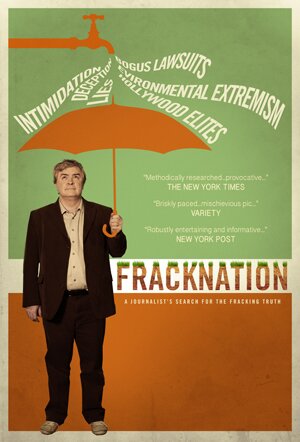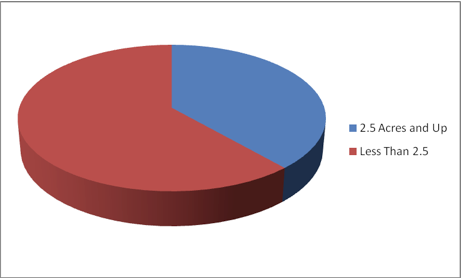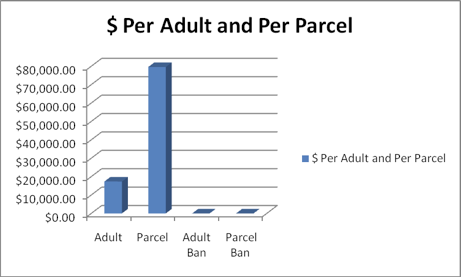DSEC letter to Dryden Town Board: policy considerations and a legal warning
ON AUGUST 2, 2011, THE DRYDEN TOWN BOARD, IGNORING THE LEGAL CONCERNS BELOW, ENACTED A TOTAL ENERGY DEVELOPMENT BAN FOR THE TOWN, TRYING TO LABEL WHAT HAD BEEN REFERRED TO BY ALL AS A BAN AS A "CLARIFICATION" OF EXISTING ZONING LAW.
Dryden Safe Energy Coalition (DSEC)
c/o Henry S. Kramer
1524 Ellis Hollow Road
Ithaca, New York 14850
(607) 275-3635, Fax (607) 275-3671
August 1, 2011
Dryden Town Supervisor
Members, Town Board
By E-Mail and hand delivery to Town Clerk
As it appears that the Dryden Town Board will be voting on a complete energy development ban on August 2, 2011, this to present DSEC’s position, to amplify Henry Kramer’s prior statement, and to put the Board on formal notice that if it passes a total energy development ban it will be engaging in knowing prospective violations of constitutional rights, federal, and state law.
If the Board enacts the proposed ordinance it may subject the Town not only to litigation costs but also to potentially hundreds of millions of dollars of taking liability, which would ultimately have to be borne by the taxpayers. The Board should not take lightly the risk of such potential liability.
Whether or not the Board believes it may somehow legally prevail, the Board should weigh the cost to benefit ratio of adopting this ban. Even assuming, for argument only, that the possibility of success were 50-50, can the Board risk the chance of a nine figure liability? Not reasonably.
First, the ban would violate the Fifth and Fourteenth Amendments of the United States Constitution and constitute a taking requiring just compensation. The ban entirely confiscates mineral rights to an estimated value of $175 million (valuations may vary, but the significance of the sum involved remains), not including the additional value of royalty rights also likely in the many millions and the costs of litigation. Alternatively, the Board’s action may be viewed as a 100% confiscatory tax on wealth in mineral rights, a tax outside the Board’s powers, not authorized by and preempted by state law. Board members have fiduciary responsibilities. Given the magnitude of potential damages and the outsized legal risks, it is simply not fiscally prudent behavior to adopt this ban.
Second, the ban would be in violation of the state’s preemption of the regulation of drilling. In the May Dryden newsletter, the Town Supervisor so acknowledged. Legal authorities give ban ordinances little chance of surviving court challenge. The wiser course, when faced with legal doubt, is not to act.
Third, the ban as a zoning ordinance is in violation of many of the holdings of the New York Court of Appeals in the Udell zoning case, a copy of which was previously supplied the Board. Read the case and it should guide the Board.
Fourth, the ban is ultra vires, that is outside the authority of a town board. There is no authorization in state law for the Town to enact a complete ban, on the contrary Town action is preempted. An Article 78 proceeding may follow.
Fifth, a Town may not, by local ordinance, nullify, or make entirely nugatory, state created and recognized mineral rights and general laws. To do so would, in effect, nullify state law and state created rights within Dryden. If towns could do this, they could pick and choose which state laws would apply.
Sixth, section 5 of the proposed ban which would have the Dryden ban trump state and federal permits and actions, as a matter of black letter law, is invalid. It is reasonable to conclude that the Town Board will be knowingly attempting to override and destroy constitutional, federal, and state rights.
Seventh, the ban is discriminatory. It shifts the entire alleged environmental protection costs onto land and mineral rights holders instead of the general population. This is not an incidental shift but an overwhelming burden, extinguishing millions of dollars of thousands of individuals’ property rights. If such an action is taken, it must be a general charge on the population of the Town. The survey on which our comprehensive plan is built calls for compensation for takings. Further, such compensation was provided when the Town bought development rights, recognition of the injustice of unpaid taking.
Eighth, adoption of this ban would cloud the land titles of thousands of Dryden residents who have signed leases on 41% of Dryden land. A ban is a classic force event and may prevent these leases from ever expiring. A ban could thus condemn many Dryden residents to land sale and mortgage difficulties for years to come, a harsh and selective punishment.
Ninth, the Town may not be insured for any act it takes which it knows, or reasonably should know, is illegal. The Town is notified it will be in violation of constitutional and legal rights if it enacts the ban.
Tenth, if Town Board members, having notice, violate constitutional and legal rights, they may lose their qualified immunity and be subject to suit in their personal (possibly uninsured) capacities.
In conclusion, the Town should affirmatively anticipate that federal and/or state court action against it is highly probably, if not virtually certain, on one or more of the above cited or other claims. You cannot extinguish hundreds of millions of dollars of property values held by thousands of residents and separate mineral rights held by both in and out of state people without anticipating legal actions. The energy industry has its own causes of action and may also sue.
It is highly probable that this overly broad ban, as written, will have unforeseen or unintended consequences. For similar reason, the County Legislature deferred action on a road law.
The more sensible alternative and responsible fiduciary response is to defer any action on a ban until ban challenges elsewhere are litigated. Certainly, the State is far from ready to begin permitting wells, so there is no need for haste. You have at a minimum into 2012, if not longer.
The Town should take notice that a ban is inconsistent with environmental advocates’ position favoring the development of natural gas under the Kyoto protocols. It is also inconsistent for the Town and individuals to use energy from elsewhere while refusing to allow its regulated development locally. And, failure to develop domestic energy means foreign energy dependence, foreign wars to protect vital energy interests, and the sapping of revenues the government could use to pay debt and provide programs.
DSEC’s mission is to offer balanced, data driven information on safe energy development, to logically and numerically evaluate benefit-to-risk ratios, free of emotional bias or ideology, and to bring together people interested in an analytical approach to energy issues. A ban does not serve to meet this mission. It does not allow for a “middle way” in which there is lawful, safe, regulated energy development. Legally, we believe a total ban is an unnecessary high risk strategy for the Town and which in its uncompensated takings is unjust.
The Board is now on notice. It is DSEC’s hope the Board will do the prudent thing and recognize there is both division of opinion in Dryden and significant large scale dollar risk. Both drilling without regulation and refusal to drill are equally extreme solutions. We oppose both. Please opt for deliberate moderation and do not adopt in haste this radical total ban.
Sincerely yours,
Dryden Safe Energy Coalition
By Henry S. Kramer, Tracy Marisa
- Log in to post comments






